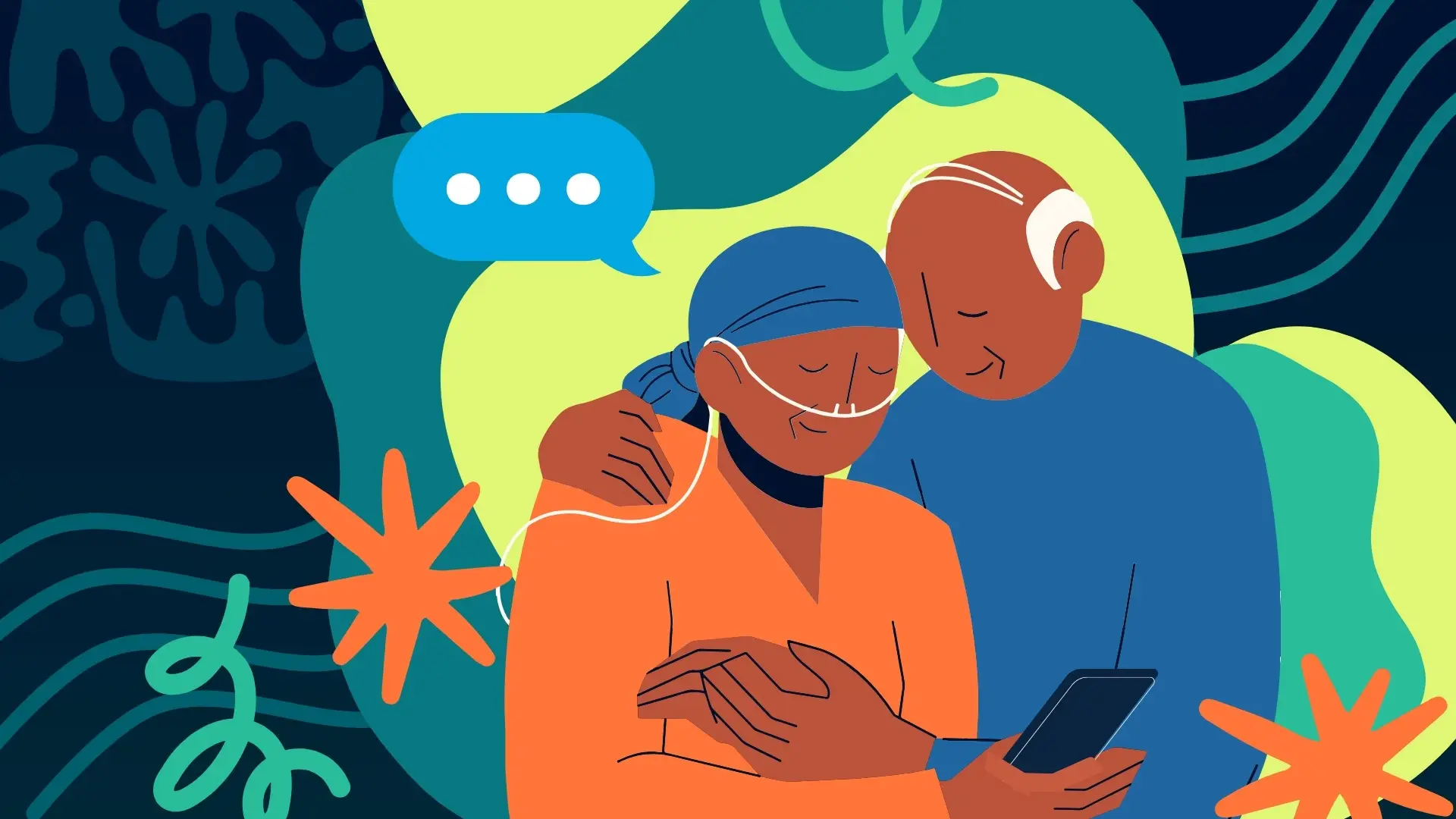
Sarah had her first cigarette when she was 13. For the past few years, she has struggled with Chronic Obstructive Pulmonary Disease (COPD) and cardiovascular disease. And today, you held her hand and told her that she has Non-Small Cell Lung Cancer (NSCLC).
You know that Sarah will need care coordination for cancer treatment and her other chronic conditions. And she’ll also need help with the mental health, social, and financial challenges that come with a cancer diagnosis.
That’s why your practice will assign a care manager to Sarah to help her navigate her care. Sarah can text or call her care manager any time she has a question or concern. Her care manager will create a care plan and check in with Sarah at least once a week. Her care manager will connect Sarah to resources, manage her care, and escalate anything concerning to you according to triage guidelines.
Because your staff will proactively manage Sarah’s symptoms, she can avoid unnecessary trips to the hospital and emergency room. You can treat her at home or in outpatient office visits. And Sarah will have fewer co-pays and a better quality of life.
“Sarah” is an imaginary patient – but this level of between-visit care and support can be very real.
At Eastern Connecticut Hematology & Oncology (ECHO), more than 1500 patients receive proactive between-visit care every month. How? ECHO uses Medicare Chronic Care Management (CCM) reimbursement to fund their Connected Care program. Care managers fill the gaps between appointments, offering necessary care coordination to help prevent complications and keep patients at home.

When we started learning about CCM we started saying, okay, this makes sense for our patients. How do the patients communicate with us? How do we know that the patients are taking their medications? If there's a change in medication, they get admitted to the hospital or they go to the ER, that we need to stay in touch with. We need to have various touch points for our patients.
President of Eastern Connecticut Hematology & Oncology
ECHO’s Connected Care program plays an important role in enhancing outcomes for patients with chronic conditions. Patients value comprehensive care (9.4 out of 10 average satisfaction score). Care managers help alleviate stress for patients and their families by addressing needs early, coordinating care, and ensuring access. And early intervention contributes to better symptom management and overall quality of life.
The Connected Care program at ECHO addresses the full spectrum of challenges faced by oncology patients. Value-based care programs like the Enhancing Oncology Model (and the previous Oncology Care Model) strive to improve care coordination and patient outcomes. But with Chronic Care Management, ECHO is able to fund and coordinate whole-person care for fee-for-service patients as well.
Care managers help ECHO patients manage the physical challenges posed by their illness and treatment. They also ensure continuity of care to address changes in medication, hospital admissions, or other clinical events. But Dr. Kapur reminds us that cancer impacts every aspect of a patient’s life: “social toxicity, financial toxicity, emotional toxicity, travel toxicity.” ECHO patients can also text their care managers for resources and help from the practice’s social worker.
Connected Care lightens the load for health care providers at ECHO. Care managers manage most of the additional patient interactions. ECHO physicians concentrate on specialized oncology care while ensuring that patients receive well-rounded support for all aspects of their health.
Chronic Care Management can help your oncology practice:
The key to success? Patient engagement.
ECHO’s care managers maintain a 95% patient engagement rate every month.
Strong engagement creates trusted relationships between their patients and their practice. When patients receive regular check-ins, they share critical health information. And early insights help better manage comorbidities and complex and rapidly changing treatment regimens and side effects.
How do they do it? Watch a Q&A with Dr. Kapur and his team now.
ON-DEMAND WEBINAR
A cancer diagnosis can upend a patient’s life. ECHO’s Connected Care program – funded through Medicare reimbursement for Chronic Care Management – helps provide the continuous care and support their patients need.
Learn how ECHO maintains an impressive 95% patient engagement rate for 1500+ at-risk patients – enabling the practice to surface issues and intervene early to keep their patients out of the ED or hospital.